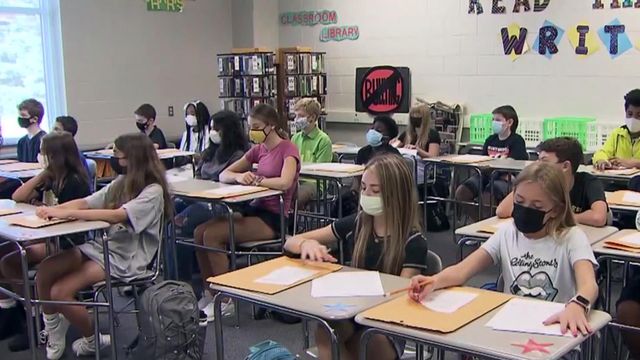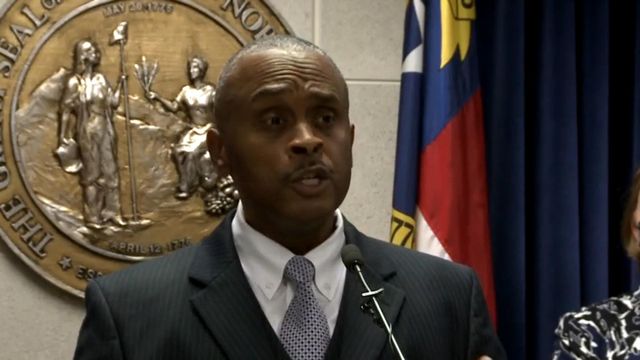Quality of NC education should return to what it used to be, 'Leandro' plan advocates tell lawmakers
While some on Wednesday said the state's lawmakers should be held in contempt of court for failing to appropriate the more than $1.5 billion funding for a court-ordered education plan, lawmakers in attendance also said no one thing will hold up their approval of the budget for this fiscal year and next.
Posted — UpdatedWhile some on Wednesday said the state’s lawmakers should be held in contempt of court for failing to appropriate the funding for that plan, lawmakers in attendance also said no one thing will hold up their approval of the budget for this fiscal year and next. Lawmakers and Gov. Roy Cooper have not successfully implemented a new budget since 2018.
“There would not be a single issue that stops the governor or Republican leadership” from passing a budget, House Minority Leader Robert Reives said, adding that lawmakers can’t ignore the many other needs of children.
“If they’re going to be educated, they need to be healthy. … There’s a ton of things we’ve got to do,” said Reives, D-Chatham.
But Democratic lawmakers have largely supported the Leandro action plan, while Republicans have balked at the research behind it and the cost of implementing it. That’s led to a court-ordered plan with no immediate likelihood of funding.
“It is beyond the pale that we have legislators in this building who took an oath to this state to say, ‘Nah, we’re not beholden to the constitution,’” said Renee Sekel, the founder of Save our Schools NC. “I don’t care what they think; I care what they took an oath to do.”
"We have a global state, but we’re not preparing our students for that global future," said Marcus Bass, executive director of advocacy group Advance Carolina, who has taught in a disadvantaged school. "When you look at research and science and commerce here in North Carolina, we’re not preparing our students to live and work in the heart of the hubs that we’re building."
"They've taken this report ... from [consultant] WestEd, this California group that has put together this report claiming that they know best how to fund North Carolina schools," said Moore, R-Cleveland. "Well, I believe we know best how to fund North Carolina schools by North Carolina legislators."
House Democrats filed a bill in May that would have appropriated $1.5 billion toward the early years of the Leandro plan, and the governor proposed a similar amount. Current annual education spending from state coffers tops $10 billion.
The state House’s two-year proposed budget includes about a third of what’s required in the Leandro plan – $615 million – while the Senate budget includes about an eighth – $236 million. Both budget proposals include additional education spending outside of the Leandro plan, such as an increase in vouchers for private schools.
The state has a surplus of nearly $8 billion. But other plans and proposed tax cuts totaling $2.5 billion in the next two years would reduce the state’s budget flexibility.
Lawmakers and the governor are negotiating a final budget proposal. With no final deal in sight, observers predict the judge will likely grant the state an extension a deal is reached.
North Carolina’s spends far less per students than all but a handful of states. Federal data from a 2018 survey showed North Carolina is the ninth lowest in spending per students, just $9500 per student. Spending in South Carolina tops $11,000 and in Virginia, it’s well over $12,000.
Reives noted insufficient education spending under multiple governors, both Democratic and Republican. It’s been happening for 30 years, he said, but high-quality education before then helped working-class students like him succeed.
“The only reason I’m standing here today is because, at one point, we were doing this right,” he said.
Related Topics
• Credits
Copyright 2024 by Capitol Broadcasting Company. All rights reserved. This material may not be published, broadcast, rewritten or redistributed.






